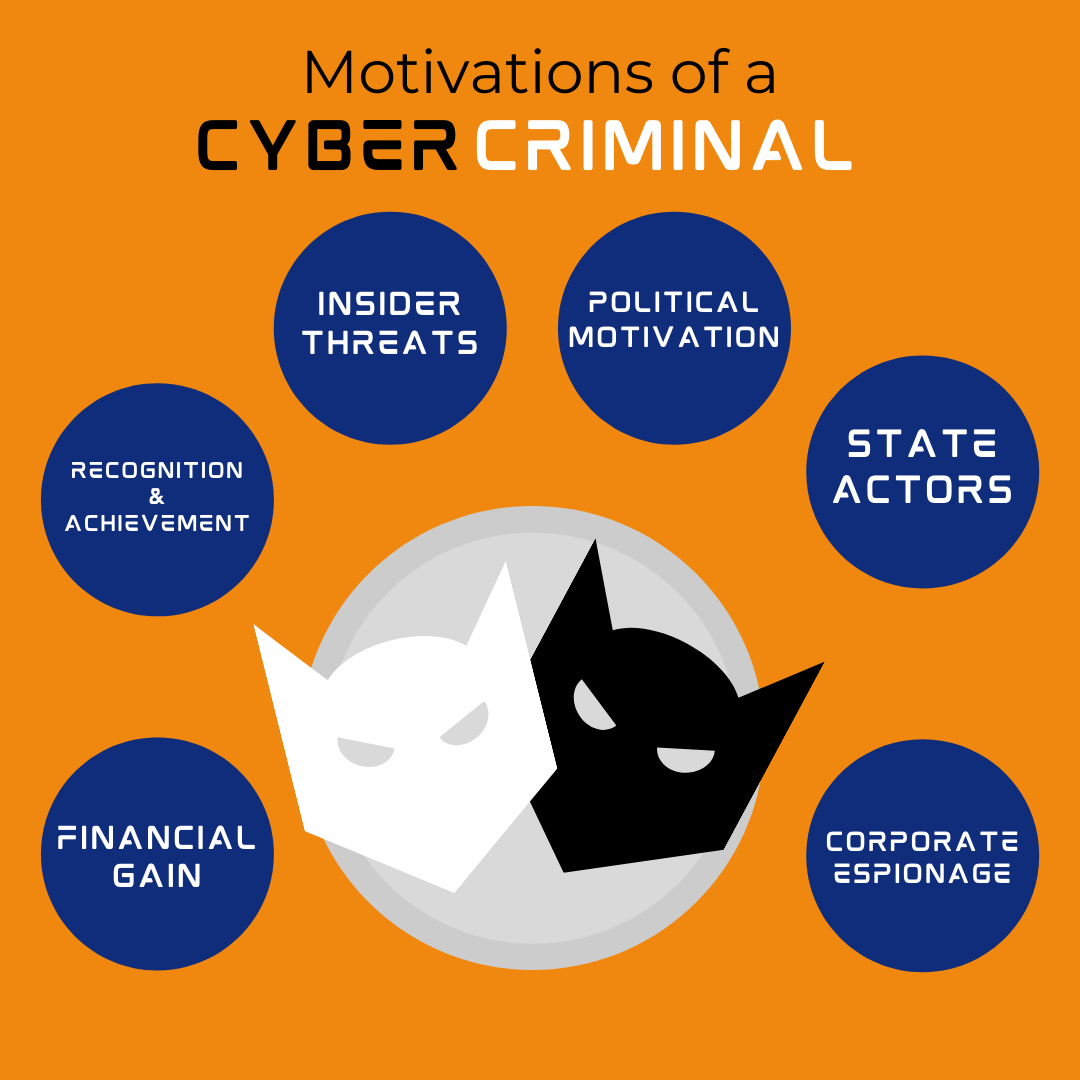.jpg?width=300&name=50689831_s%20(1).jpg) If you’ve read about recent cyber attacks in the news, you might be wondering why cyber criminals try to hack into other systems and what motivates them.
If you’ve read about recent cyber attacks in the news, you might be wondering why cyber criminals try to hack into other systems and what motivates them.
If you can understand why a hacker hacks (their motivations) a little more clearly, along with who is most likely to be targeting your specific organization, you can bolster your defenses and be ready for whatever the threat landscape throws your way.
How are cyber criminals motivated?
While there are several motivations for hackers, we’ve covered 6 of the most common ones in this article:

1. Financial Gain
The primary motivation of a hacker is money, and getting it can be done with a variety of methods.
They could directly gain entry to a bank or investment account; steal a password to your financial sites and then transfer the assets over to one of their own; swindle an employee into completing a money transfer through a complicated spear phishing technique, or conduct a ransomware attack on your entire organization.
The possibilities are endless, but most hackers are out to make a profit.
2. Recognition & Achievement
Some hackers are motivated by the sense of achievement that comes with cracking open a major system. Some may work in groups or independently, but, on some scale, they would like to be recognized.
This also ties into the fact that cyber criminals are competitive by nature, and they love the challenge their actions bring. In fact, they often drive one another to complete more complicated hacks.
3. Insider Threats
Individuals who have access to critical information or systems can easily choose to misuse that access—to the detriment of their organization.
These threats can come from internal employees, vendors, a contractor or a partner—and are viewed as some of the greatest cyber security threats to organizations.
However, not all insider threats are intentional, according to an Insider Threat Report from Crowd Research Partners. Most (51%) are due to carelessness, negligence, or compromised credentials, but the potential impact is still present even in an unintentional scenario.
4. Political Motivation – “Hacktivism”
Some cyber criminal groups use their hacking skills to go after large organizations. They are usually motivated by a cause of some sort, such as highlighting human rights or alerting a large corporation to their system vulnerabilities. Or, they may go up against groups whose ideologies do not align with their own.
These groups can steal information and argue that they are practicing free speech, but more often than not, these groups will employ a DDoS (Distributed Denial of Service) attack to overload a website with too much traffic and cause it to crash.
5. State Actors
State-sponsored actors receive funding and assistance from a nation-state. They are specifically engaged in cyber crime to further their nation’s own interests. Typically, they steal information, including “intellectual property, personally identifying information, and money to fund or further espionage and exploitation causes.”
However, some state-sponsored actors do conduct damaging cyberattacks and claim that their cyberespionage actions are legitimate activity on behalf of the state.
6. Corporate Espionage
This is a form of cyber attack used to gain an advantage over a competing organization.
Conducted for commercial or financial purposes, corporate espionage involves:
- Acquiring property like processes or techniques, locations, customer data, pricing, sales, research, bids, or strategies
- Theft of trade secrets, bribery, blackmail, or surveillance.
Knowing what motivates hackers is a key part of keeping them out of your business IT systems.
But a layered, comprehensive cyber security strategy can do even more to keep your organization safe and secure.
Protecting your information and systems from every vantage point, including your networks, devices, applications, transmissions, privileges, and storage is critical, as is regularly training your staff on the latest cyber threats, trends, and ransomware phishing attacks.
Do you have cyber security concerns about your business? Contact CoreTech today, and we will conduct an IT security assessment.

